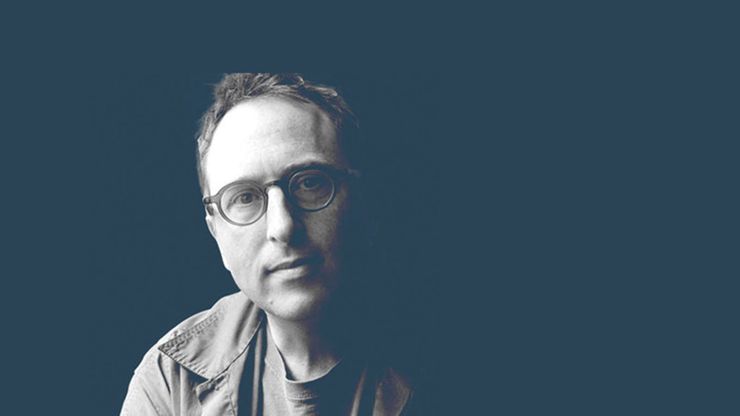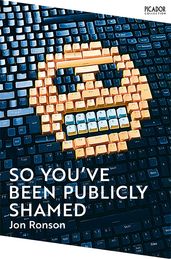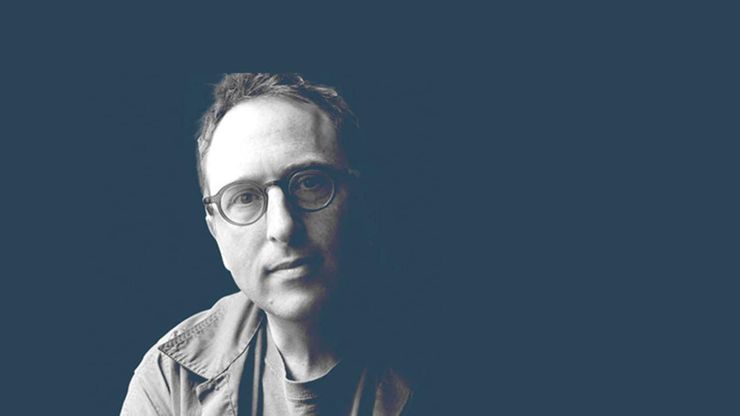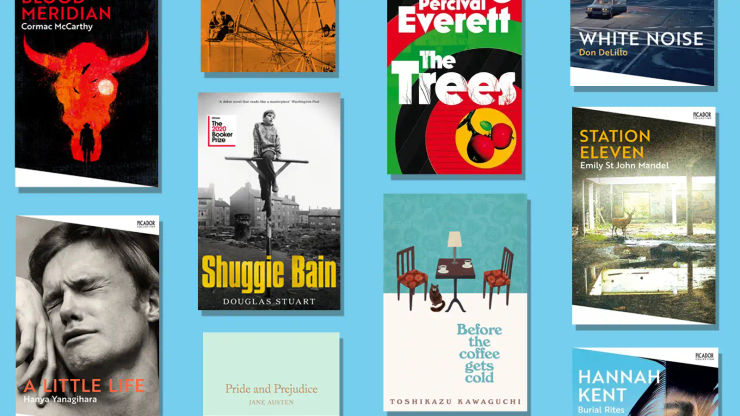Jon Ronson on our changing relationship with social justice
Simultaneously powerful and hilarious in a way only he can be, listen as Jon Ronson reflects on the true stories that not only inspired him but have stayed with him long after he finished writing his modern classic, and shares what his relationship with social media is like in 2022 . . .

With the rise of social media, the silent majority now have a voice, but in So You've Been Publicly Shamed, Jon Ronson asks us to reflect on how we use it. Jon’s interest in public shaming was first piqued when he met with ordinary people who had made mistakes, from poorly worded tweets to their 170 followers to insensitive jokes, and soon saw their transgressions go viral.
The book has since become a modern classic and this year it has been reissued as part of Picador Collection, a new series of era-defining titles showcasing the very best of modern literature. To mark the release of this new edition, here Jon answers our questions and reflects on how public shaming and the power of social media has changed in seven short years.
Listen, here:
Abridged transcript below.
Throughout the course of writing So You've Been Publicly Shamed, you met and interviewed many people whose lives had been affected by public shaming. Who’s story has stayed with you the most, and why?
I wouldn't say it was any particular story – it's more just, images. I was writing this book before cancel culture had been identified, before people were thinking about public shaming. I would go around America and meet these people who were private individuals who had made a bad joke on Twitter, shared a photograph that made them look silly, or whatever. These weren't public figures, they were just private individuals, and there was a woman called Lindsay Stone, who was a care worker who worked with adults with learning difficulties. She had a running gag on Facebook that she would pose in front of the sign and do the opposite of what was on it. Her life was okay after she smoked in front of a 'No Smoking' sign or walked on the grass in front of a sign that said 'Don't Walk on the Grass', but she did the same joke in front of the sign at Arlington, Virginia, the Tomb of the Unknown Soldier that said 'Silence and Respect'. Her joke was that she did the opposite, she pretended to yell and flip the finger.
This was a really early example of someone being publicly shamed by the Right, because it was the pro-military Right that really went for Lindsay. The image I have is her sitting at this little table with this old desktop computer in a house in the woods, completely unprepared and doing the very human thing of reading every tweet or every Facebook comment, and believing every word of it.
The turmoil this sent her into – she went from someone who loved doing karaoke to someone who stayed inside for a year and a half with depression, insomnia and anxiety – it made me realise that we are utilising a weapon we don't know the strength of, and we still don't know the strength of it [. . .] One of the reasons I wrote So You've Been Publicly Shamed is because I wanted people to feel that horror. If we're going to be punishing people in the dizzyingly psychologically mangling way, the least I can do is make people feel that horror.
In the years since publication, matters of social justice have become a large part of social discourse, thanks in large part to social media. Do you think the line in calling out problematic, harmful discourse and public shaming has become harder to draw?
This is what I think about the phrase ‘cancel culture’: it’s being so over-utilised to mean so many wildly different sets of circumstances that it has become a useless term, and that’s why the line is getting harder to draw.
So, to be cancelled can mean a private individual is disproportionately punished for a very minor transgression – they lose their job, their mental health gets mangled – because of a poorly–worded joke on Twitter. Cancel culture also means public figures, like agent provocateur columnists and so on, complaining about too much pushback or being bullied into silence. Cancel culture can also mean, well, politicians who have sexually assaulted people sometimes say that they are being ‘cancelled’. Those three sets of circumstances are so different to one another, that to give them all the same phrase feels completely pointless.
My book was about that first category, private people, just regular walking-around people [. . .] We are the ones with the power in that situation. So we have to ask ourselves, have we gone straight for instant judgement? Eschewing along the way curiosity and patience – I think everybody should wait a couple of days before piling in on anybody, particularly if the transgression is reported on Twitter, which is the world’s worst information–swapping service (as everyone now knows). Have we rushed to judgement too instantly? Would this particular situation benefit from us being more curious, more patient, and more empathetic?
What first inspired you to write about public shaming?
I think the real reason was something that I didn't put in the book – we had just moved as a family to New York in 2012, and I happened to notice that year people being publicly shamed on the internet [. . .] The basic vibe on Twitter was that we had a new weapon that the powerful didn't have – this weapon of public shaming. LA Fitness, the gym company, refused to cancel the membership of a heavily pregnant woman who couldn't afford the membership, so we on Twitter rallied and LA Fitness very quickly reversed their decision.
But then, of course, we fell in love with our new power too much, and we lowered our standards. We started to get people who had misspoken – private people who had misspoken, as opposed to public figures, powerful people or corporations who had committed transgressions with actual victims, we were now just going for misspeaking. People who kind of reminded you of a bad ideology.
I think the reason why I felt inspired to write about those people in an empathetic way – try to hear their side or learn what it felt like to be them – was because I had just moved to New York and wasn't having a great time, so I found myself empathising more with other people who were having a miserable time in New York.
You share the thought that some people use social media for constant and artificial high drama, where everyone is either a magnificent hero or a sickening villain. Do you think this is a growing problem, and if so, why might this be?
I can give a positive and negative answer to whether or not this is a growing problem. I’ll start with the positive: when I wrote So You've Been Publicly Shamed it felt like those of us on Twitter were toddlers crawling towards a gun. We had this very powerful weapon and no idea what its impact would be on people. Now we’re older, now when shamings happen on social media, there’s much more of a discourse, much more back-and-forth. That’s democracy! When you’ve got a bunch of people from across the spectrum arguing about something back-and-forth, that’s democracy [. . .] So my positive response is that maybe things are getting better.
My negative response is that more and more people, including me, are growing increasingly worried that we’re heading towards some sort of civil war in America, around the 2024 election and the fact that Republicans have installed their own legislators. If there were untrue calls of fraud next time around, maybe institutions might not be able to endure, and a president will be elected that everybody knows lost – which is such a frightening thought. There’s no doubt that the way people scream at each other on social media – the culture that has become known, I think poorly, as ‘cancel culture’ – has a great deal to do with the fact that things are growing so polarising and mistrustful that we may actually be walking towards a civil war.
Do you think it’s in anyone’s interest to perpetuate these opposing viewpoints and the resultant echo-chambers, and is there a danger in this?
Well, a lot of people benefit from it, but we don’t, by and large. Speaking of Justine Sacco, Twitter and Google made somewhere between $120,000 and $468,000 dollars that night [after she trended worldwide], because her shaming was increasing traffic and ad revenue. You could argue that we’re like unpaid ‘shaming interns’ for Google [. . .] I recently created Things Fell Apart for the BBC, and one of the episodes is about how libertarians created the internet on libertarian principles, including unencumbered free speech – meaning lies, or being as offensive as you want to be. So it’s not a bug, it’s a feature.
And then of course you've got what the civil war experts call 'civil war entrepreneurs', the hucksters and the politicians who make money from stoking these fears.
For quite some time you quit Twitter altogether, what’s your relationship with social media like now?
I’m definitely not unselfconscious anymore on social media. In the very earliest days of Twitter, it was an unselfconscious place to be. It was a place where people could be themselves and share their shameful secrets, and other people would say ‘Oh my God! I’m exactly the same.’
It was a place of empathy, but then it turned into a place of judgement. And so the hunt became finding and exposing people’s shameful secrets. You can tell which one would be the more psychologically healthy way of dealing with fellow human beings.
So You've Been Publicly Shamed

CELEBRATING FIFTY YEARS OF PICADOR BOOKS
Characteristically powerful and hilarious, So You’ve Been Publicly Shamed is a deeply honest book about modern life, full of eye-opening truths about the escalating war on human flaws – and the very scary part we all play in it. This edition features a new chapter and interview with perhaps the most famous public shaming victim of all – Monica Lewinsky.


